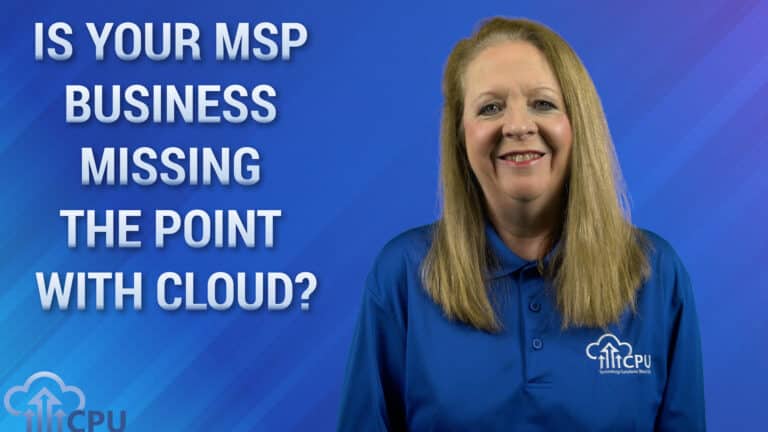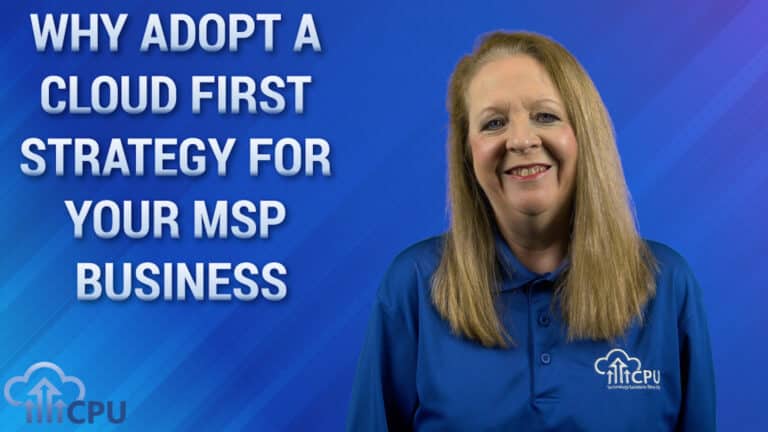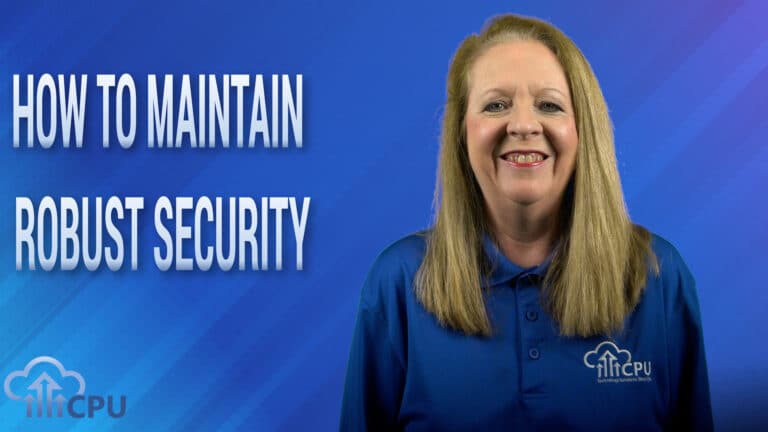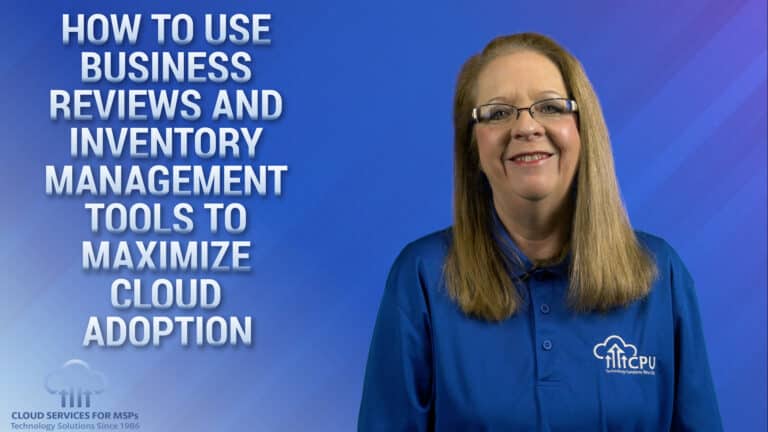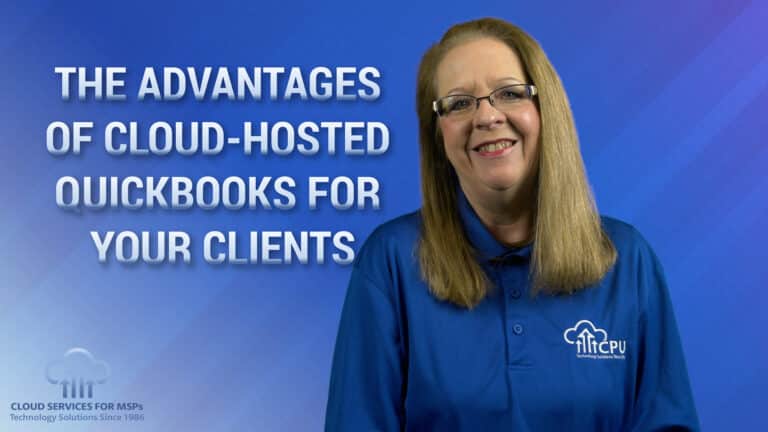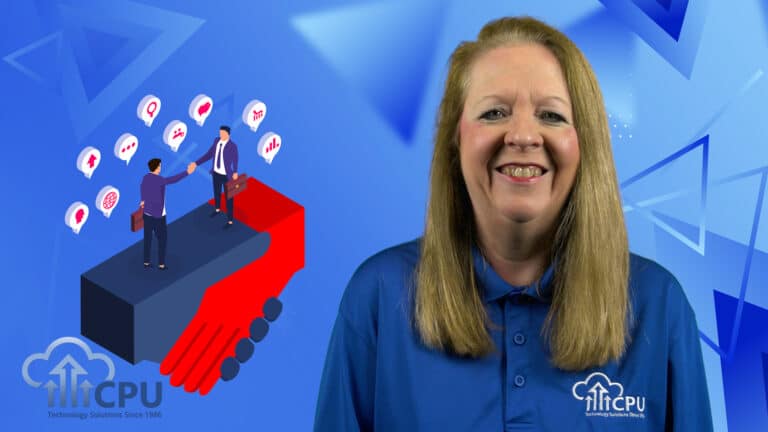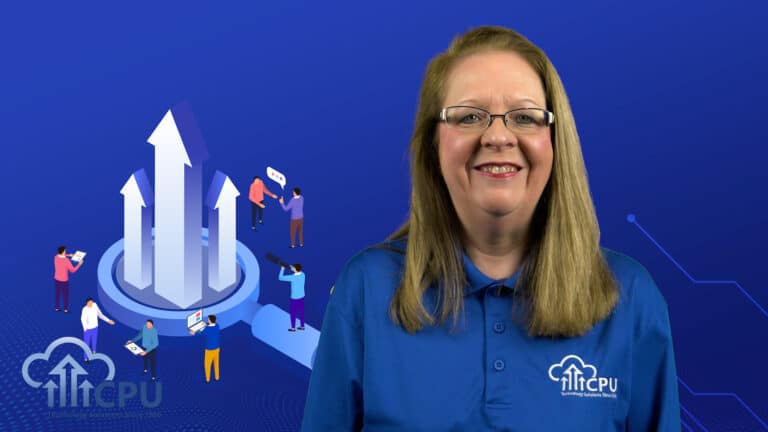The only way to escape the cloud nowadays is to be stranded on a deserted island, which makes it puzzling why some MSPs are still skeptical of their ability to sell the cloud and explain the cloud to others. In 2022, a business owner proclaiming that they will “never sell cloud” is signing a death sentence for their business. Is your MSP missing the point of the cloud? Cloud is not going away. That’s a fact. However, if you think it can be ignored, think again. Are you fooling yourself about the cloud like other MSPs that I have talked to? Are you the MSP that says, “It isn’t in my client’s best interest, so I ignore it”? Even if your client isn’t ultimately interested in moving to the cloud, you need to educate them; if you aren’t educating them, your competitors are.
Read more →Cloud: It’s not going away. In fact, cloud has completely redefined the IT industry and managed services. MSPs today need to embrace the cloud in order to meet the demands of clients having more and more remote workers, and the first step to this is by adopting a cloud-first strategy. What are the advantages and disadvantages to becoming a cloud-first MSP? What is a cloud-first MSP? Given the choice between relying on a local, on-premises resource or one based in the cloud, a cloud-first MSP chooses the latter. This doesn’t mean that MSPs must move every part of their business to the cloud, but it does mean taking a “cloud-first” approach when making decisions for client technology. By making the cloud the default basis of their operations, MSPs gain the following advantages: Scalability: they can increase or decrease resources on demand.
Read more →Cybercrime is constantly evolving. With many businesses transitioning to the cloud in recent years, the cloud has become a significant target for cybercriminals worldwide. As an MSP, you need to make sure that you are providing up to date cloud servers with robust security options to prevent unauthorized access to your customer’s information. What are some of the most common ways to help your customers cloud servers stay secure? One common way to strengthen the security of your customer’s cloud server is by using a firewall. Firewalls act like a wall which can help to prevent hackers from attacking. Think of them as a gatekeeper. How do they help? Monitor Traffic. Firewalls monitor traffic coming in and leaving your cloud server. A firewall will inspect this traffic for threats and if found, will block them. Protect against malware.
Read more →Whether you are using your remote monitoring and management (RMM) software or more enhanced tools such as Scalepad to track client asset lifecycles, you should be discussing aging infrastructure and warranties with your customers. Failing to do so is putting them at risk and costing you additional revenue. You may already be conducting quarterly technology business reviews, sending monthly reports, or scheduling check-in conversations, but you should also be planning at least an annual full technology business review to discuss inventory and forecast future needs. The best time to do this is when companies are planning their budgets for the upcoming year. Delivering the Tech Plan During the tech review, you should pull an inventory of all of their assets and provide a technology plan for replacing or retiring inventory that’s aging out, reaching the end of life, or needs upgrading to meet future business needs.
Read more →Let’s take a minute to talk about QuickBooks. As one of the most popular accounting programs available on the market, the capabilities and flexibility offered by QuickBooks makes it a common choice for many businesses. What can hosting the desktop version of QuickBooks do to improve your client’s workflow and make their job easier? The Benefits of Cloud-Hosted QuickBooks There are two distinct options when it comes to QuickBooks in the cloud: using a hosted version of QuickBooks online or a hosted version of desktop QuickBooks. Many MSPs have customers that want their desktop versions of QuickBooks to be in the cloud, but they believe the only option is to move their customers to QuickBooks online. Luckily, cloud hosting the desktop version of QuickBooks is very possible, and using this version provides several distinct benefits to your customers.
Read more →If there’s one thing that’s true of most IT professionals, it’s that you got into IT, not sales. Selling isn’t a natural skill for many MSP owners, because they’re often much more comfortable working on systems, software and services than they are with asking for orders or creating an outstanding pitch deck for the next presentation. However, trying to keep your MSP going without having a solid sales process in line can make the business much more difficult to grow successfully. Here are some secrets to help you improve your sales process and ensure that your MSP can see successful growth for many years to come. Talk to Your Customers You may think that you need to tell your customers about your certifications, credentials and specifications, but that’s not why your customer is seeking you out.
Read more →The increase in cyber-attacks in 2021 is unprecedented and unrelenting. Coming on top of a 69% increase in escalation in 2020 and reported losses of $4.1 billion due to breaches, cloud security should be at the top of every MSP’s priority list. While the public thinks about hackers targeting specific companies, cybercriminals today are also attacking MSPs directly by exploiting gaps in security software. This was underscored by the recent attack on MSPs – and their customers – through a vulnerability in Kaseya VSA, a cloud cybersecurity solution used by many MSPs. The Kaseya attack was similar to the so-called supply chain attack used to insert malicious code into software updates for SolarWinds customers in 2020 which exposed data across hospitals, universities, private companies, and government agencies.
Read more →Digital transformation has reached nearly every business and industry. Whether it’s creating a total reimagining of the workflow, modernizing IT infrastructure and systems, or just migrating services and operations to the cloud, the technological demands of today’s business are growing at a rapid pace. Managed Service Providers (MSPs) are playing a bigger role in helping create, manage, and protect business infrastructure and cloud services. In 2022, MSPs need to focus on three key areas to provide their customers: Cyber Security Cloud Services Education Let’s dig a little deeper into each of these three emerging Managed Service Provider trends. Cyber Security Cybercrime is no longer about lone hackers in a dark basement trying to hack their way into systems. Cybercrime is now the domain of organized crime and state actors that are increasingly targeting businesses of all sizes.
Read more →The world of cloud services is rapidly expanding to help businesses across all industries grow and thrive. In fact, with more than $35 billion spent on cloud services during the second quarter of 2020, it’s safe to say that the cloud will play a prominent role in the future of IT, remote collaboration and data storage. That being said, when accompanied by erroneous practices, cloud spending can dominate a larger portion of your clients’ budgets than expected. Check out the following tips that MSPs just like you can utilize to help clients reduce cloud spending without undercutting the value of their cloud services. Eliminate Wasteful Practices One of the best ways to reduce your clients’ cloud spending while maintaining excellent cloud services is to eliminate wasteful practices. Such practices could include excessive cloud storage spending or investing in unnecessary computing resources.
Read more →As an experienced MSP, you know that the cloud plays an increasingly important role in businesses’ growth and expansion today. After all, in 2021, cloud spending is projected to reach unprecedented peaks worldwide. With such high demand for cloud computing services, the chances are that your team is prepared to help clients make a seamless transition to the cloud. However, in making this change, are you making the mistake of treating clients’ cloud strategies and business strategies as entirely separate entities? The cloud is a crucial part of your customers’ future business plans — and should be treated as such. Check out our 5 essential steps to making the cloud an integral part of your clients’ business strategies going forward. Step 1: Goal-Setting The first step to creating a cloud-inclusive business plan for your clients is prioritizing goal-setting. Ask your clients about their 1-year, 3-year or even 5-year plans.
Read more →
